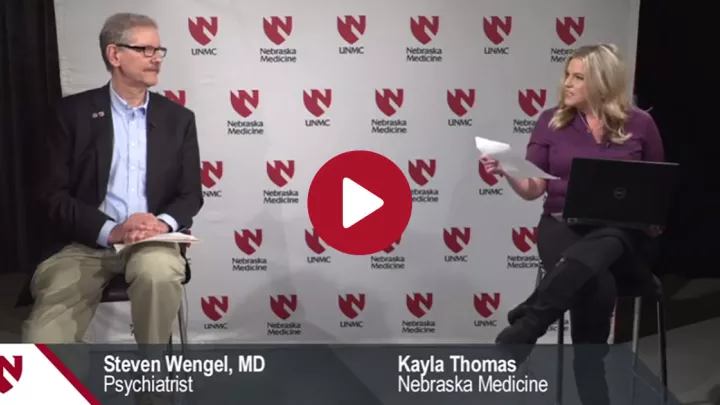This is what COVID-19 grief looks like

We are grieving
Each day, hopes of the end of the pandemic continue to seem further out of reach as new variants emerge and cases continue to increase. Events are being cancelled regularly and trips are put on hold. Deaths total are approaching 1 million and hospitals are overwhelmed. Together, we are experiencing a traumatic event. And we are grieving.
A traumatic event is a jarring moment when you are unable to process what is currently happening. Think of a car crash. We are only able to recognize what is happening after it has happened; however, this pandemic is not over.
We have lost our sense of safety. Some have lost their jobs. Some have lost loved ones. Some have lost their lives.
How do we address this feeling of loss? To start, it is important to name the emotions we are feeling. By naming the feeling, we can begin to understand how the emotion is physically impacting us.
What grief feels like
Elisabeth Kübler-Ross, MD, created a model of grief to help us understand these emotions. Many people don’t experience these five stages in the exact same order.
Denial (avoidance, shock, fear): I won’t get sick. Even if I get sick, I'll recover. It’s not that bad. It's the flu.
Anger (frustration, anxiety, irritation): Social distancing is stupid. I don’t want to wear a mask. Who buys 20 rolls of toilet paper? Only stupid people go out.
Depression (overwhelmed, helpless, flight): I’m going to miss my birthday. Is there ever going to be a cure? No point in cleaning, no one is coming over.
Bargaining (struggling to find meaning, weighing the options): If I go outside and maintain social distancing, I can still see my friends. What if I go out this week, and then stay in for two weeks?
Acceptance (control, moving on): I can wash my hands. I will wear a mask. I don't have to go out. I can stay home.
How do emotions affect the body? When we are sad, we frown. When we are angry, we furrow our eyebrows. When we are happy, we smile. In naming those sensations and where we feel them, we can set motion into allowing ourselves to process what is happening.
Finding meaning
Feeling grief is not a simple process. Even admitting we are grieving makes us uncomfortable.
Not everyone experiences grief the same way. Imagine you’re riding a roller coaster for the first time. Your friends are telling you it’s not so bad, some people say it’s the scariest ride in the park. How you are feeling is just as important.
Finding meaning in grief is not easy. We want recovery to be simple and straightforward, but it’s more like a roller coaster in the dark. You are on this track and it’s moving, but you don’t know if you’ll start banking or take a steep drop.
Instead of fighting back, allow the emotions to be experienced. When riding a roller coaster, once the ride is in motion, there is not a lot to do to stop it. At first, it’s terrifying. As we get more comfortable, we can see the tracks laid out before us. The ride will end. We have to give it time.
What to do next
Taking care of yourself should become a priority, but remember to be kind to yourself while caring for others. Step away from media and let yourself be in the moment. Remember to eat, drink water, get some sleep and move your body.
If you find it hard to navigate this additional emotional stress, we are here for you. Here are some resources you might find helpful.
- Use a mindfulness or anxiety app on your phone. Insight Timer is free with thousands of guided meditations. PTSD Coach is another great one that isn’t just for PTSD. It also has numerous relaxation exercises in the Manage Symptoms – Tools section
- Try a deep breathing or body scan lesson. Here are a few lessons you can try: deep breathing lesson, 3-minute body scan and 5-minute body scan
- Schedule time for yourself. Make time for activities that give you space to be quiet and reflect on how you feel. Maybe you like puzzles, reading, yoga, listening to music or knitting. The activity isn’t as important as having a safe place where you can process your emotions







